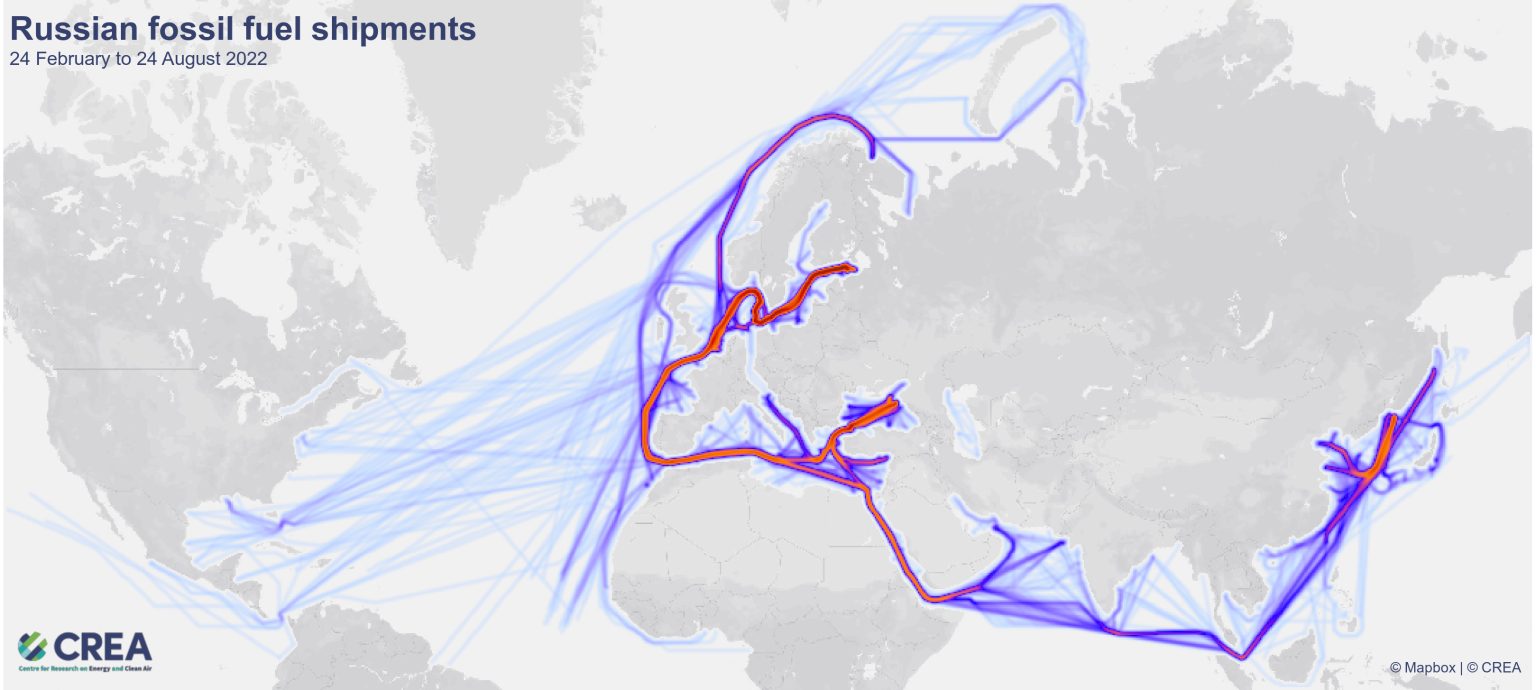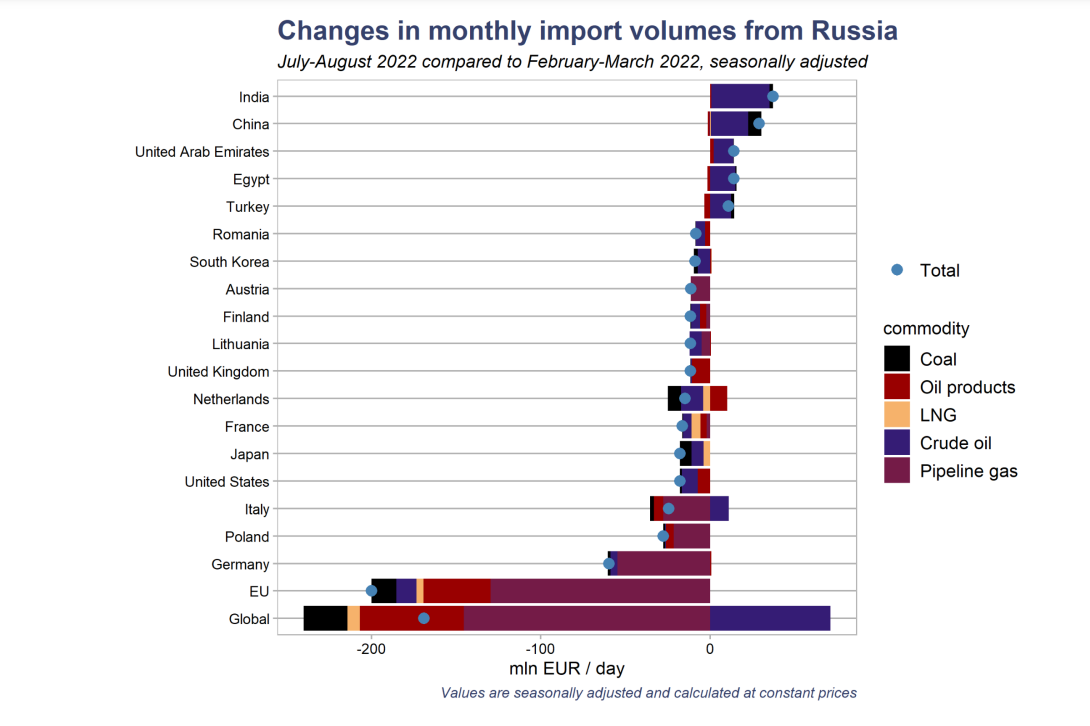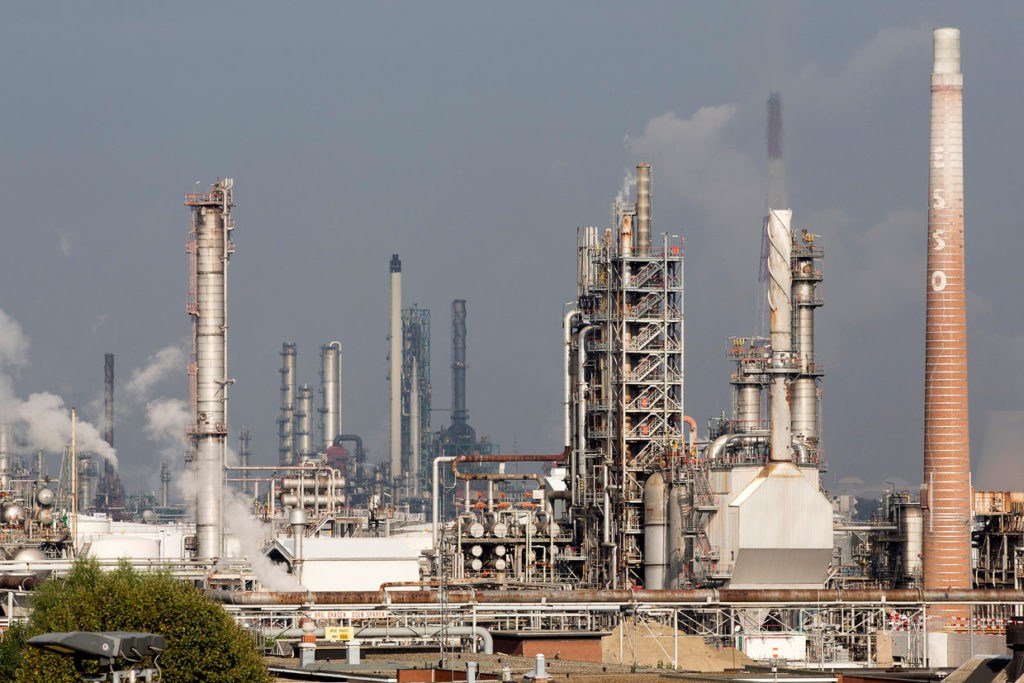Since the start of Russia’s war in Ukraine, Russian authorities have reaped massive profits from high energy prices. According to a report published on 6 September, Russia has garnered a total of €158 billion in just six months of war. Experts are now calling for more effective sanctions to prevent feeding Russia’s war machine.
“Soaring fossil fuel prices mean that Russia’s current revenues are well above those of previous years’ level, despite the reduction in this year’s export volumes,” the report published by the Centre for Research on Energy and Clean Air notes.
Of the energy exports from Russia, the European Union was the single largest importer, followed by China (€34.9 billion) and Turkey (€10.7 billion). 54%, or roughly €85 billion of energy, of Russian energy was purchased by the EU since the start of the war. Since February 24, Belgium has imported €4.5 billion of Russian fossil fuels, becoming the seventh largest importer in the EU.

Credit: Centre for Research on Energy and Clean Air
The European Union has already committed to a gradual embargo of gas and petroleum products from Russia. Currently, the EU has enacted a partial-embargo on Russian oil imports and a comprehensive stop to coal imports. Nevertheless, Europe is still reliant on Russian gas. In order to prepare for the winter, the EU has committed to reducing its demand for natural gas by 15%.
The researchers note that the EU’s comprehensive coal embargo has paid off, with Russian exports dropping to the lowest level since the start of the war in Ukraine. Russia has failed to find new markets for its coal exports, the researchers note.
More worryingly, the researchers noted that Russia’s fuel export revenues and volumes had “rebounded slightly from the low reached in June.” Some nations, including India, China, and the UAE are importing more energy products from Russia compared to the start of the war.
Related News
- Commission says it is 'fully on track with energy crisis proposals'
- Energy crisis: Germany is not counting on a reopening of Nord Stream 1 pipeline
- Energy crisis: Flanders finalises framework for business support measures
Russia’s exports are still down 18% compared to levels reached at the start of the invasion. The EU’s crackdown on Russian fossil energy is credited as the driving factor behind the drop in exports, which costs Russia €170 million every day.
The report also notes that the shift away from Russian fossil energy is “accelerating clean energy around the world.”

Credit: Centre for Research on Energy and Clean Air
“While the immediate impact of the crisis has been to drive up demand for non-Russian supplies of fossil fuels, the sky-high fuel prices are making clean energy investments attractive around the world and creating momentum for clean energy policies,” researchers note.
Since the start of the European energy crisis, 19 European governments have accelerated their clean energy targets. If the countries stick to these targets, the use of fossil fuel in the European energy sector will drop 30% by 2030, compared to energy plans conceived in 2019.
The report recommends “decoupling prices paid to Russia from internal energy prices” to prevent high-prices leading to greater profits for the Russian government. To this end, researchers urge European governments to implement price caps on wholesale energy markets, which would keep prices for European consumers at stable levels while preventing Russia from weaponising energy exports.

